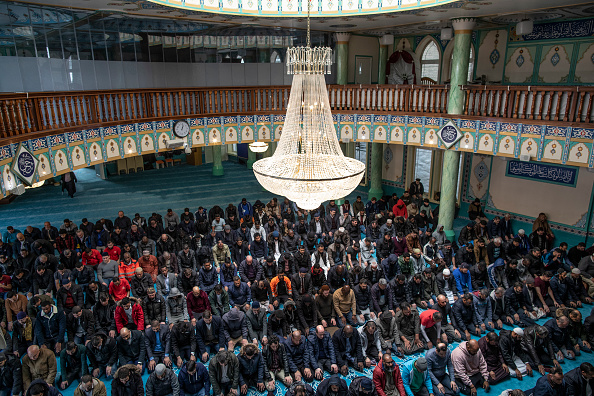A new report looking at the religious experiences of Muslim women in the UK has discovered that nearly 1 in 5 never attend a Masjid.
The report, conducted by Muslim Census in collaboration with Ta Collective, found that even though the Masjid is seen as a centre for communal and spiritual life, 17% never visit a masjid while 25% rarely visit one.
Shockingly, 20% of Muslim women in the UK have at some point been denied entry to a Masjid.
“As prayer is a religious obligation that Muslims must fulfil at specific times during the day, many women have been put in difficult situations after being denied entry to a Mosque and have had to resort to fulfilling these obligations in uncomfortable or unsafe alternative spaces,” said the report.
This study, which was conducted through a series of focus groups and a survey that received 1,200 responses, found the spirituality of almost two-thirds (61%) of women is detrimentally impacted by this lack of access to a Masjid.
Younger Muslim women and those from the black community reported the highest negative spiritual impact.
The report also found that less than 10% of Muslim women have access to a trusted Islamic scholar for guidance.
“We hope our findings shine light on the issues affecting British Muslim women and resonate with Mosques and community leaders to work towards developing initiatives that specifically cater to the needs of Muslim women,” the report said.
Experience with the Muslim community
Seventy per cent of Muslim women in the UK feel some level of positive connectedness to Islam, while only 32% feel connected to the wider Muslim community.
Meanwhile, less than half said they had a positive experience within the Muslim community.
“Having a positive experience within the community is closely linked to how and where people are able to obtain information and guidance pertaining to matters of faith,” said the report.
Two in five Muslim women rely solely on online routes to seek Islamic knowledge and advice.
Overall, the most common source of guidance and support in faith matters is from family and friends.
“Though this wider familial and friendship support network is crucial, it is perhaps worrying that only 15% of Muslim women in the UK reported Masjids or a trusted Islamic scholar as their main source of Islamic advice and knowledge,” the report said.
“Masjids and scholars should occupy a communal position within the wider Muslim community, accessible for all those seeking guidance – it is concerning that an overwhelming majority of Muslim women in the UK do not have this experience.”
Despite these challenges facing Muslim women, many actively seek alternatives to fulfil their religious and spiritual needs.
Thirty-eight per cent of Muslim women sought some alternative to services or facilities they would hope to access from a Masjid. Young women are more active in seeking out alternatives.
Testimonials
The report featured quotes from survey respondents. Here are a select few.
“The males go to the masjid and we are forced to pray in changing rooms, car parks etc. It becomes so that Salah is a box to check off – there is no ease, no Khushoo [sense of tranquillity or focus], no community.”
“As a young Muslim woman, it’s been difficult making practicing/ spiritual friends. It would be great if Masjids opened their doors to female speaker events, classes etc. that both involve the community and also gives Muslimahs a strong sense of belonging.”
“I feel belittled and disregarded and my spiritual journey is not as important as a man’s. It’s tiring. When I have sought out an imam for advice I’ve received really cold treatment and left with a sense of shame. It put me off going to the masjid for a while as I don’t think they know how to interact with women in a way that is merciful and relaxed. You always feel illegal (best way to describe it) seeking out the provisions that are your right as a Muslim”
“Lack of access to women scholars, or scholars that have knowledge about women’s issues, inherently creates a culture of young Muslim women to not recognise/connect with important tenets of Islam.”





